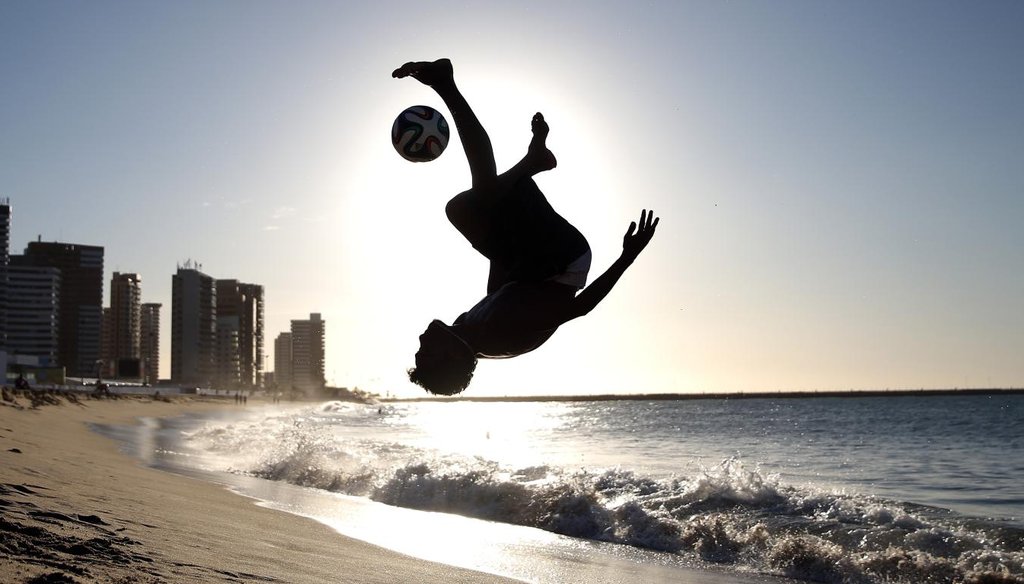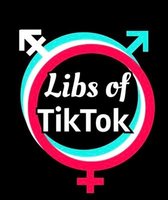Stand up for the facts!
Our only agenda is to publish the truth so you can be an informed participant in democracy.
We need your help.
I would like to contribute

A boy plays soccer on Iracema Beach in Fortaleza, Brazil, on the eve of the 2014 FIFA World Cup. Getty photo.
The U.S. Justice Department and FBI stunned the sports world Wednesday by arresting top officials at FIFA, world soccer’s powerful governing body, on charges of corruption and bribery connected to World Cup bids and marketing deals.
The early morning arrests in Zurich at FIFA’s annual meeting followed an FBI indictment alleging racketeering, wire fraud and money-laundering conspiracy among 14 people, including U.S. and South American sports-marketing executives, the New York Times reported.
The federal charges against members of the powerful sports organization are a first, though the group has survived similar accusations for years.
When Last Week Tonight host John Oliver skewered FIFA in a June 2014 segment, we fact-checked a couple of his claims about the group pressuring Brazil to change its national policy on alcohol in stadiums for the 2014 World Cup as well as wasteful construction spending.
If you’re not familiar with FIFA, the fact-checks shed some background about the group’s practices and what’s at stake.
Sign up for PolitiFact texts
Forcing Brazil to pass a ‘Budweiser bill’
In his viral HBO segment, Oliver cast FIFA as a heavy-handed organization that interferes with host country laws to please sponsors. (The indictments essentially argue the same point.)
When FIFA awards a World Cup to a country, it sets off a wave of national spending on new and existing infrastructure. For the 2014 World Cup, Brazil had to do one more thing: Do away with its ban on booze at soccer matches, per FIFA’s demands.
"The amazing thing is here FIFA won. They successfully pressured Brazil into passing a so-called Budweiser bill, allowing beer sales in soccer stadiums," Oliver said. "And at this point you can either be horrified by that or relieved that FIFA was not also sponsored by cocaine and chainsaws."
Did FIFA really cause a brewhaha in Brazil? We said True.
Faced with mounting deaths at soccer matches, the Brazilian government passed a law in 2003 that banned alcohol sales at stadiums. But FIFA is sponsored by Budweiser and interested in profits from beer sales, so the prohibition had to go for the World Cup.
President Dilma Rousseff signed a World Cup-related bill into law in June 2012. The bill that passed actually did not explicitly authorize beer sales at the matches, but government leaders said it allowed Brazil to lift the alcohol ban during the World Cup month, per FIFA’s demand.
And so, the Brazilian World Cup was awash in Budweiser and Brahma — served in plastic cups.
Wasteful construction spending
Oliver also went after the amount of waste that accompanies the FIFA World Cups, honing in on a brand-new 42,000-seat stadium nestled in a riverside city in the Amazon rainforest.
The stadium in Manaus cost more than $300 million, requiring materials to be shipped by boat from Portugal and then through the Amazon River — and the stadium sits where an older, smaller stadium used to be.
"Okay, that does seem like a waste of money, especially when you consider that that stadium is only going to be used for four World Cup games," Oliver said. "There’s also no team in Manaus that can fill it afterwards, at which point it becomes the world’s most expensive bird toilet."
Really? Just four games?
PunditFact rated his claim True.
Ahead of the World Cup, officials planned to use the Arena Amazonia for four World Cup games and then a local team’s matches, though there was no expectation they would attract World Cup-sized crowds.
One thing that has changed since last summer, however, is that the 2016 Olympics in Rio de Janeiro will incorporate the Manaus stadium for matches during its two-week soccer tournament — some 1,800 miles from the host city.
Arena Amazonia, photo by www.bbmexplorer.com
The 2022 World Cup in Qatar
The 2022 World Cup will be held in Qatar, a controversial FIFA choice due to alleged bribery and mistreatment of workers as massive construction plans unfold.
Ahead of the Brazil World Cup, ESPN host Jeremy Schaap traveled to Doha to dig into claims by construction laborers of working in high heat, deaths from accidents, and confiscated passports that prevented them from leaving their jobs and getting home.
"We're talking about a country that can afford to do better," Schaap said on MSNBC’s All In with Chris Hayes in June 2014, adding that per capita, Qatar is world’s richest country.
"Qataris don't really work. They don't have to work," Schaap said. He noted that the Qatari government offers generous benefits for the unemployed.
His claim that Qataris "don’t really work" rates False.
Schaap backtracked on his claim when PunditFact asked him about it. That’s because official reports say that most working-age Qataris actually do work in a variety of professions. The government provides almost of the jobs, but people are not paid if they do not go to work.
The majority of the construction workers, however, are not Qatari, and do face huge risks.
North Korean propoganda machine?
We’ll close with a claim that is more entertaining than relevant to a heavy-handed FIFA or wasteful World Cup spending.
After Germany’s win in the last World Cup, a viral YouTube video by the anonymous channel Korea News Backup appeared to tell North Koreans that their national soccer team made it all the way to the championship and would face Portugal in the World Cup final.
It was clearly intended to be a satire about the communist government’s propaganda and control over its citizens, but several bloggers appeared to take the claim seriously. One writer for the blog Outside the Beltway posted, "North Korea is telling its people that their men’s national team is in the World Cup final." Presenting a mock video’s message as news earned our worst rating: Pants on Fire!
Our Sources
See individual fact-checks.












































